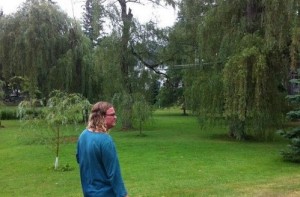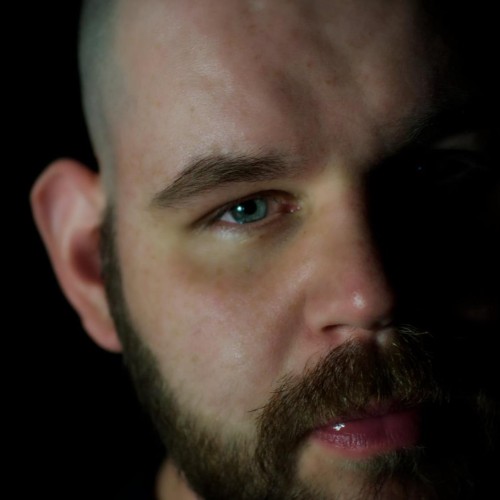The use of the internet in modern Paganism has changed the way that people access information and express themselves in modern culture. One of the most widely used mediums for information sharing has become the blogosphere. Pagan blogs range from having an academic theme to the purely personal, and everything in between. The popular transition from reading books to reading blogs has created a culture of fast information gathering and the ability for everyone to have a format. This has also contributed to the idea that everyone is a potential “expert,” making the distinctions of reliability challenging.
This type of fingertip access to information has many benefits in modern day culture, but how do those benefits affect the overall culture within modern Paganism, or does it at all? Different groups of people may have different opinions on the benefits and problems created with Pagan blogging and the instant access to this version of the Pagan world.
![[photo credit: pixabay.com]](https://wildhunt.org/wp-content/uploads/2015/02/macbook-pixabay.com_-500x333.jpg)
[photo credit: pixabay.com]
What does this mean and what does that look like in community culture? Who are our leaders, experts, and resources in the community, and how does this change the landscape of how we access popularity? How are leaders and experts chosen, and how does the blogging culture influence who gets attention?
The following are some thoughts from a variety of Pagans on this concept of whether blogging culture has an impact on Pagan culture, and our community.
Jason Mankey
I think the short answer is that sometimes it does. Recent discussions about race, gender, transphobia, and creating safe spaces at festivals and conventions have transcended their origins online. I think these are all issues we are currently confronting within our circles, covens, and groves. I think we are still far away from the lasting and permanent change many of us wish to see, but the dialogue is encouraging and moving in the right direction.
The issues of theology that often dominate the internet discourse rarely to never come up in the terrestrial groups I’m a part of. However, I think some of those conversations represent the inevitable schisms that will one day divide the Pagan umbrella. As a result it’s possible that we will feel their influence in the future, though I think that future is still far on the horizon.
One of the problems with the Pagan blogosphere is that it represents only a small slice of Pagandom. Those who follow most of the “trending topics” that arise within it are a fraction of a fraction. It’s an engaged fraction to be sure, but it takes awhile for ideas to work their way through a community as large and diverse as modern Paganism. In that way the influence of blogs is a bit more subtle and hard to see, but those of us who engage in it on a day to day basis can see its influence. – Jason Mankey, blogger at “Raise the Horns,” Patheos Pagan Channel
David Salisbury
I think that some blogs are influential and that others identify what is influential on the community. Pagan blogs tend to follow trends of topics, even across various sites, and I find that interesting. Identifying trends (and what isn’t trending) feels like a helpful gauge for what our community thinks is important and what isn’t. Sometimes those realizations are exciting and sometimes they’re very disappointing. – David Salisbury, author Teen Spirit Wicca
Erick DuPree
Blogging connects people from all over the world and provides a platform to humanity’s deep need to be heard. For Pagans, I see that blogging provides the opportunity for people to come together holding widely varied belief and create community and build identity, while using technology as the ‘magic.’ There is an equal playing field in blogging, at least in the beginning, that like the core of our diverse spirit has the power to build bridges and spread Pagan values and ideals.
Personally, blogging changed my life, by allowing in me the freedom to seek wisdom and explore it interactively with people from all walks of life. My ‘covenstead’ has in many ways become the blogosphere where the dialogue is rich, meaningful, sometimes contrary, but always an invitation to more. More magic. More Wisdom. More love. – Erick DuPree, blogger at “Alone in Her Presence”
Clio Ajana
Blogging is an act of justice that gives voice to those who are not often heard. In Peggy McIntosh’s “White People Facing Race: Uncovering the Myths That Keep Racism in Place”, a few of the myths that blogging destroys are the myth of white racelessness and the myth of monoculture. Blogging by Pagans of Color eradicates the stereotype that those who worship the Gods are, of necessity, uniform by nature and white by class, race or upbringing. Blogging makes it possible to see the corners,what is hidden from the rest of the world. Each myth destroyed, each level of resistance challenged and each open discussion about privilege in Paganism brings the overall community closer together. We are able to reveal what we know about ourselves to those who might not see beyond the once or twice a year encounters with those who embrace some level of paganism as a person of color. Blogs are a necessary counterbalance to the blandness that stereotypes the definition of “Pagan” in 2015. – Clio Ajana, blogger “Daughters of Eve,” Patheos Pagan Channel
Cara Schulz
I think it does for a very small minority. If there are a million Pagans just in the USA, give or take, and even a really well read blog only has a few hundred or even thousands of readers, that is a very small percentage.
But if we’re talking about the Pagan community, that’s a bit different. The Pagan community is both a small world and a very segmented “community.” Large segments exist almost as islands, rarely if ever interacting with the wider community. Plus, most Pagans are still solitaries and while some are connected to the wider community, most aren’t.- Cara Shulz, staff writer, The Wild Hunt
Tim Titus
Blogging tends to have an influence beyond its readers. While even the most read blogs attract only a small percentage of the total pagan community, those it does attract tend to be engaged in the community. As a result, their reactions set a course for discussion. That discussion has the ability to steer the movement. The influence is indirect, but it is real. – Tim Titus, blogger at “Intersections”
Niki Whiting
I consider blogging a method of discussion. Blogging can often respond to, create, or steer the discussions that various groups are having, or provoke ones that we need to have. Is it the only means of influence? Of course not, but as social media becomes more and more a part of the way our communities interact, I think blogs can distill topics, teach wisdom, amplify certain voices or issues, that are present in the community at large. – Niki Whiting, blogger at “The Witch’s Ashram,” Patheos Pagan Channel
Aaminah Zulu Shakur
Blogging has made it possible for solo practitioners and others who feel isolated to find community with people all over the world. For those of us from marginalized backgrounds, it has helped us to find and connect with other marginalized people and to increase our understanding of our practices and incorporate new ones. One of the really exciting things that I think blogging has done to influence Modern Pagan culture is to provide opportunity for marginalized communities to speak about what it means to be marginalized both in the broader Pagan community and the world at large.
Blogging is where useful discussion of racism, homophobia, transantagonism, and cultural appropriation is able to happen in ways that allow us to see the human face of these issues. Cultural appropriation is one thing that blogging, and the internet in general, have brought to a wider discussion. To a degree, the internet has made it easier to culturally appropriate, as practitioners can google and find so many things that they wish to cobble together into a practice without thinking about the origins or privileges they may have that make it easier/safer for them to use them. On the other hand, blogging is where we are able to talk about those origins, what it feels like to watch someone make money off of something that may still be illegal or at least discouraged for us to retain of our own culture, what it means on a personal level, and what it means on a larger cultural level. Blogging creates accessible avenues for education, and for personal engagement and relationship building. – Aaminah Zulu Shakur, artist and healer
Anomalous Thracian
The internet is a fascinating thing. On the one hand, it is a tool that has created space for platforms — such as blogging — which allow for international connections and communications, bringing diverse groups together in ways that they would not be able to otherwise. The internet is also a place, in the true sense of the word, wherein spaces are hosted and guested and the rules of hospitality must by necessity apply, else the worst kinds of harm are allowed to happen. Blogging, however, can be a lot like any other colonizing land-expansion: it allows equally for people with valid dreams and visions to find a respectful place for these to be seen into fruition as it does for those with nothing but greed and hunger and disillusionment with what they are ultimately turning away from in turning to a blog.
There are some who were using the internet in the “glory-days” of exclusivity, before it was fully mainstreamed, who harken back to those nostalgic times where it took a certain level of know-how to stumble into such places, trailblazing or at least “knowing the right people.” These days anyone can hop on their phone and become a digital “land-owner” and that can be both good and bad. A person can hungrily devour a corner of the blogsphere to espouse hatred at others over things like disabilities or race or religious experience and identity, just as easily as they can stake out a territory and declare it a safe-zone for progressive human-rights and religious-rights oriented work, dialog, and endeavors.
A person with a blog can be a force of change or a force of flaming trollfire, rubbing up on everything and leaving it stained, soiled, and ruined for whoever else might come along next. In terms of how this influences the Pagan community? Well, thanks to all of the above — good and bad — we now have a landscape to not only settle some of our differences, but even identify what they are in the first place, and iron out the nuances of language and identifiers — Polytheists from Archetypalists, for example — and from there we can forge the spaces and the rules to navigate those identifiers, those boundaries, and thereby defend the perimeters of the unimpeachable rights and freedoms that we all must, at the end of the day, agree as paramount to our collective doings. – Anomolous Thracian, founder and editor of Polytheist.com
Aine Llewellyn
Yes and no. Part of me says ‘yes’ because I’m biased. I’m a blogger, I read other blogs, I live a lot of my life online. Online Paganism, the blogosphere, influenced my own religion and how I approach in-person communities.
What I see in the blogosphere are conversations about theology and boundaries and where Paganism might go. Of course those conversations are going to affect the wider community. The people writing these blogs are going to go out into their own communities and take these ideas with them!
I think the idea that blogging doesn’t matter comes from some complex ideas. There’s the idea that online interaction isn’t ‘real’. Then there’s the idea that people who blog or read blogs regularly are not ‘actually’ involved in their communities. This is true in some cases! However, some people don’t have offline community, or the one they do is toxic or unsafe in some way, or it simply doesn’t fill their needs. And these are just two ideas, both of which need a lot of unpacking to understand…
I think to understand why blogging can change our culture, we have to remind ourselves that people, real people, are writing these blogs. They are going to bring these ideas with them wherever they go. We don’t know how blogging is going to fit into our history yet. But I think the resentment and snark directed at blogging itself – the mere act of writing and engaging with other Pagan bloggers or readers – is misplaced.
But I have to also say no, because the petty drama and attention-mongering that we see? That’s not important, that’s never important. Online or offline. But that’s exactly it – the sort of ‘me me me’ that we see online can happen offline too, and it seems we’re very bad at acknowledging that. – Aine Llewellyn, artist and blogger at “of the Other People.”
![[photo credit: www.jisc.ac.uk]](https://wildhunt.org/wp-content/uploads/2015/02/ebook-pic--500x247.jpg)
[Photo Credit: www.jisc.ac.uk]
The energetic exchange between blogger and reader is just as important as the words on the screen. We cannot deny the impact of information; whether it is academic, social or personal. The reciprocal nature of communication, and the medium in which it is given in, means that the receiver is just as affected as the giver.
Does the impact of blogging on culture rely on numbers or is it more dependent on the way that people internalize information and take it out into the world? Erick DuPree mentioned to me that, “Blogging might only touch a few people’s lives in the grand percentage of the world’s populace, but one person reading about compassion, about self care, about magic, or about social justice, is one more person than had there not been a blog.” I tend to agree.
How discussions are shaped, how problems are identified and how popular trends are accessed in community largely rely on the blogging community and the conditioned behaviors that the internet fosters. The way that the blogosphere affects the other elements of our community in the long run has yet to be seen, but we do know that the culture of communication and connection has changed greatly since blogging has become a more common means of expression among modern Pagans.
The Wild Hunt is not responsible for links to external content.
To join a conversation on this post:
Visit our The Wild Hunt subreddit! Point your favorite browser to https://www.reddit.com/r/The_Wild_Hunt_News/, then click “JOIN”. Make sure to click the bell, too, to be notified of new articles posted to our subreddit.









A blog is little more than an online diary. Sure, it is nice to read an entry made by someone you may feel you have a connection with, but therein lays the real problem. The Internet fosters a false sense of community and takes away actual physical networking and meeting. I listen to a radio program hosted by a civil rights activist and he bemoans often about “armchair activism” and how a “like” on Facebook is markedly different than attending an organizing meeting. Someone noted that the percentage of pagans reading blogs and active on social media is low. I agree. How much is your self-satisfied Internet bubble taking away from getting out, organizing, and meeting folk? How “earth centered” can a spirituality be when so much energy is spent in a “virtual” space? We spend much energy reflecting on the past. It’s time to consider paganism projected into the future. Having an online footprint is fine but it needs to be the “gateway” to pagan experience, not the entirety.
” How much is your self-satisfied Internet bubble taking away from getting out, organizing, and meeting folk?”
Considering the nearest group I’d even feel welcomed in is either a 3 or 5 hour drive in any direction, pretty little. Considering I’ve met more like-minded people that I can intellectually network with, despite vast distances, pretty little.
Also, condescending much?
“How “earth centered” can a spirituality be when so much energy is spent in a “virtual” space?”
Do we really have to keep having this conversation? Not all Pagans are “earth-centered”.
“We spend much energy reflecting on the past. It’s time to consider paganism projected into the future.”
You’d find a lot of people projecting their Paganism in to the future, highlighting, growing, and laying the foundations for material works that could not have happened without the virtual space you appear to bemoan.
I didn’t even bring up the topic of trolls, flame wars, and people shouting down dissent. Thanks for your contribution to my reply.
The fuck are you on about?
You mean…the same things that can happen offline, and often do? Problems that have plagued the Pagan – or *any* – community since it began?
Right? At least you can avoid people you don’t like/flat out ignore them in ways you can’t in person without a restraining order.
Let’s be honest, 99 per cent of trolls and other interet warriors would not dare saying one percenth of the filth they say online to an actual person.
They are weak-minded cowards who believe that one can act without consequence, both in the real world and on the interwebs. How wrong they are…
Of course. But it is also very easy to ignore someone you disagree with on the internet. Unless, of course, they go out of their way to harass you.
Yeah, that’s true. It’s also true that the 1% who *will* say it in person– and the ~30% who believe it and will sort of-kind of say it in a backhanded and passive aggressive way– are like a hand grenade in an in-person group and infinitely more difficult to get rid of than an online troll infestation. The same social inhibition that makes the online troll reluctant to troll IRL also makes leaders reluctant to engage in the conflict necessary to moderate an IRL group. So that one cuts both ways.
I actually prefer in-person community in part for that reason: working out conflicts within community is a spiritual discipline. Admittedly, a difficult one, and I often find comfort in the arms of the much easier online world.
I seem so much smarter when I can edit myself before my words reach my “hearer.”
That’s just not true. It’s a pile of specious bovine defecation, in fact.
The advantage of saying it on-line is is the fact that it affords them the ability to get the whole of what they intended to say out before the tantrum by the person they’re saying it to commences.
No different than writing it down in a letter on paper and handing it to the person.
Well, we all know how useful and noble are anonymous letters in any cases.
BTW – I love your blog. You need to post more! (The name was a dead giveaway.)
I appreciate it!
It doesn’t foster a ‘false sense of community’, you just don’t personally value the communities it creates. If you don’t like online spaces, you don’t have to inhabit them! Or spend your time in online spaces you do enjoy, rather than tearing others down 🙂
Technically the Wild Hunt is a blog. Is this website simply an online diary? Websites like Patheos Pagan, Polytheist.com, and Pagan Square offer hundreds of different articles on a monthly basis online. The majority of them are nothing like a live journal entry or a personal diary. The best blogs are far more like “magazines” than online pontificating. “Blogs” are full of ritual, histories, reflection, and yes, commentary.
The internet is no substitute for hand to hand communication, however, for many people it’s the only option. There are not 10 million Pagans in the United States, and many of us still live in the broom closet. Pagan media offers people a place to meet and interact with others of a like mind. Some of my best friends in this community are from the “online world” and our attachments are not any less real for not having met in the flesh.
We used to discuss a lot of the issues currently being debate in the blogosphere on the letters page of magazines like “The Green Egg.” Today we discuss things in real time online.
More and more I see “blogs” as having an impact on the flesh and blood Pagan community. I was skeptical of such influence as recently as three or four years ago, but things have changed a great deal since then. I still value books, but online voices are important too, and will only grow more important in the years to come.
‘We used to discuss a lot of the issues currently being debate in the blogosphere on the letters page of magazines like “The Green Egg.” Today we discuss things in real time online.’
In the 1970s I subscribed to more than half a dozen small press periodicals to keep up with developments in feminist theory and activism. Most of the small circulation, specialist interest zines were killed off by the Internet. Blogging is what we have now to engage in ongoing, in depth discussion of topics that mainstream media do not cover.
A writer’s blog like John Michael Greer’s The Archdruid Report is like a weekly newspaper column, except that there is no gatekeeper between Greer and his potential audience. The comments section of Greer’s blog bears a strong resemblance to the letters section of an intellectual magazine back in the day.
I’m fortunate enough to have a number of Pagan and Wiccan friends within traveling distance, but they already know what I think about most topics and vice versa. To get other opinions, I go online.
One thing I really love is how much easier it is to get acquainted with people, when I have read them, or they have read me, online. There are times you wouldn’t expect that to be important that it turns out to be: for instance, I remember about five years ago, I was one of a dozen people who kept vigil with a dear friend in the hours after her wife had died.
None of us knew one another in person before that night–but a few of us knew one another slightly as friends-of-friends through social media, and it made it so much easier to be there for one another in our grief. In fact, the experience was powerful enough that several of us still keep in contact–mostly but not entirely through social media–to this day.
If fostering a sense of healing community on that one painful night was all social media had ever accomplished for me, I’d be grateful. But it is not. I have absolutely lost track of the number of times I’ve been somewhere in public, and had someone come introduce themselves by saying, “You’re Cat! I read your blog.” It breaks the ice, and a surprising amount of the time, strangers become friends.
(And mine isn’t even one of the more widely read blogs. It’s humbling.)
I’ve been getting out, organizing and meeting folk for decades. I don’t have quite as much enthusiasm for that as when I was 26 years old. I find that one way I can still make a contribution that some folks appreciate is to pass on oral history, explanations of the reasons for things, and experience about what works, to people I will never meet face to face. That’s what elders do.
When I was younger, I learned a bunch by listening to my elders telling stories around a campfire. That’s still my favorite place to talk story, but the blogosphere allows me to hear stories from elders thousands of miles away and to tell my stories to people who haven’t heard them already.
I’ve really enjoyed hearing stories, and getting background info from you.
What A. Marina said. *grin*
Consider that I live a great many miles from the nearest Pagan community. Consider that I would have a hard time finding them as I am elderly, use a walker, and can no longer drive.
Isolated, my whole 30 year interaction with the rest of the Pagan community was first by snail mail with forty letter friends in various countries, three different Pagan magazines on two different continents, and later by the internet, e-mail, forums, and blogs.
Consider that I interview Pagans of several different countries all over the world by E-mail and send out my magazine by the internet and have 3500 readers world wide. Some of the Interviews get published in a variety of languages in Europe, South Africa and Eastern Europe including Russia. I have three other Pagan groups on those same three continents that reprint those articles in their media.
I also write letters to the editors of newspapers on three continents, and even TV stations, by internet on their articles on Pagan related subjects.
Now are you truthfully going to tell me this has no effect on the community and only person on person means anything to Pagans and to the Gods? Like books, the internet keeps what you put out available. I would imagine even a few government files have copies. [Grin]
PREACH! *grin*
Well, you have a point, g75401. My own blog really is an online diary, and I think it’s probably not very relevant to most Pagans. Not completely irrelevant, and many of the connections I’ve made through it have become good friends, and others have become important connections for ideas around theology, activism, writing, and other interests of mine. So, yes, it is “nice.”
But does it take away actual physical networking and meeting? I remember a study done a couple of years ago that investigated just that question regarding women’s use of Facebook, and what it found was that, actually, the social networking that women did through social media tended to be time that they otherwise would not have been able to connect with friends physically. That certainly corresponds with my own use of social media, including my blog; I work about a 50 hour week, and there is zero possibility of my being able to engage in face-to-face community building and networking while, say, stirring a pot of chili on the stove, or in the little bit of time I get while eating lunch at my desk at work.
For me, blogging (and other social media) are how I manage to have a social life, when my life is at its busiest.
Nor is that social life incompatible with face-to-face friendships, or creating actual Pagan infrastructure. I ran a coven for many years, and interestingly enough, while we circled in one another’s living rooms, we had all originally met online. Since then, during the brief stint of time I served as the Chair of Cherry Hill Seminary’s Pastoral Counseling Department, I was able to recruit our first faculty through connections and friendships I’d formed–you guessed it–online. And these days, I am part of a strong, multi-racial dialog on racism that is happening–wait for it–online.
Is it “armchair activism”? Yeah. Should it replace actual meetings? No. Does it take the place of a walk in the woods, a face to face encounter with a friend, or a ritual around a bonfire? No. But social media does have a place in a healthy community, just as newsletters and phone trees did once upon a time. And for some of us, whether because we’re geographically isolated, work long hours, have physical handicaps or are caring for frail elders or young children, social media is how we manage to stay connected.
I hope it does, otherwise, what are we doing?
And yet, when you are living in a very orthodox Christian part of your country, you will realize that internet is a poor substitute for a Pagan community. When I die, I would like to have some Pagan friends around me, not just a number of computer screens.
Of course they do. I’m not sure why the question was even posed this way.
I notice that all the people you interviewed for this article are bloggers. Given the nature of the question, I would’ve been very interested to hear some responses from people who aren’t engaged with the Pagan blogosphere. Most of my Pagan friends do not read blogs. The idea that bloggers apparently have, that the blogosphere is driving the future Paganism whether the rest of us know it or not, is pretty scary to me as a non-blogger. I don’t want the future course of my religion to be determined in discussions I have no part of, but I don’t have the time or energy to maintain a significant enough presence in the blogosphere for my voice to be heard there without cutting back the work I do in person in my local community.
The blogs I read and comment on are exchanges of information and opinion. They can’t set policy. They have a minor role in organizing. Most organizing of events, projects and groups takes place either in person or via social media.
I haven’t personally run across any claim that the blogosphere is driving the future of Paganism. But I only read a handful of blogs. My local community predates blogs and could get along fine without them. I imagine that’s true of yours, too. Anyway, any group that claims to be in charge presents a big target for arrows.
A local Pagan community, even a big one, amounts in numbers to a small town and has the virtues and faults of small town life. I like to get out of town once in a while. Festivals and conferences are one way to get out of town. The blogosphere is another.
It would have been interesting to hear from some folks who are not denizens of the blogosphere, you are right. And I have certainly heard some pretty experienced and influential Pagans express reservations about whether or not those of us who are writing about Pagan life on our blogs actually have the experience for our opinions to be valid.
I don’t take that as an affront, myself. I think, as with all writers, some of us may be good with words but not actually very skillful or insightful in matters of the spirit; some of us are not so good with words, but quite insightful in matters of the spirit; and some of us are both at once.
You don’t have the same sense of a person’s aura, personality, and presence when you read a blog as when you meet a teacher in person. However, you don’t have those things when you pick a book up off the shelf, either. Just as a lot of books aren’t worth their cover price, so, too, many of our ideas on blogs may not be worth your time and energy.
You get to decide for yourself what book to take up to the cash register in a bookstore. And you get to decide for yourself which online writers are worth your attention, too.
“I don’t want the future course of my religion to be determined in discussions I have no part of…”
That’s kind of what happened with books and publishing Pagan materials. The future of such a wide variety of religions is *always* going to be determined by conversations you’re not part of – Paganism encompasses such a wide range of religious and spiritual traditions it’s silly to think otherwise. You can choose what to be involved in, where, and with who, and by doing so you can influence those you interact with…like bloggers do, by talking to other bloggers, interacting with people offline, so on so forth.